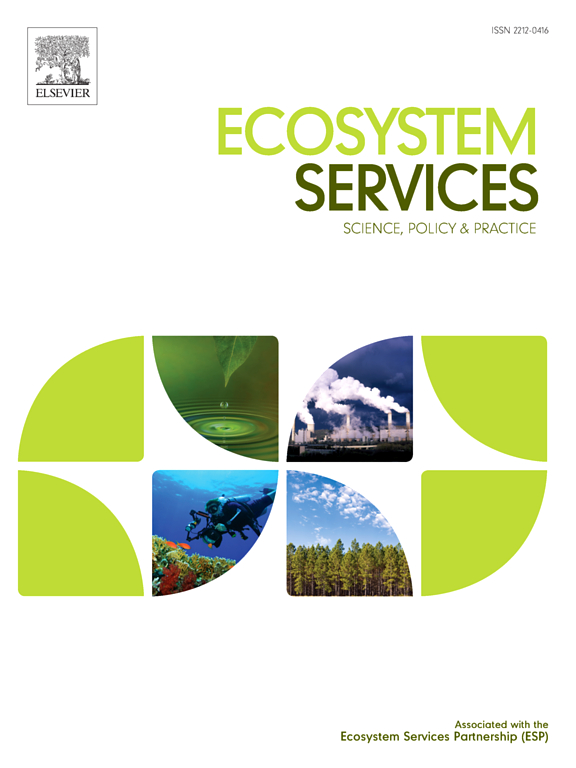Reckoning with historical injustices: Relational values in ecosystem services and environmental justice in the Mapuche-forestry conflict in Chile
IF 6.6
2区 环境科学与生态学
Q1 ECOLOGY
引用次数: 0
Abstract
This article examines the longstanding conflict between the Mapuche people and the forestry industry in Chile through a dual framework of Environmental Justice (EJ) and historical analysis. By situating recognition, procedural, and distributive justice within the context of colonial legacies, we highlight how ahistorical EJ approaches fail to address socio-environmental trade-offs in settler colonial contexts. Our fieldwork, which included interviews and observations in Mapuche communities affected by forestry, reveals contrasting perceptions of ecosystem services (ES) among stakeholders. While forestry companies prioritize provisioning services like timber production, Mapuche communities emphasize relational values tied to native forests, such as spiritual fulfillment and cultural heritage preservation. These divergences underscore systemic recognition injustices and procedural exclusions that perpetuate distributive inequities. We argue that meaningful engagement with Indigenous knowledge and histories is crucial for fostering equitable ES governance. By integrating EJ perspectives into ES frameworks, our study contributes to the decolonization of ES research and offers insights into resolving socio-ecological conflicts in Indigenous territories.
清算历史的不公正:在智利马普切森林冲突中生态系统服务和环境正义的关系价值
本文通过环境正义(EJ)和历史分析的双重框架考察了智利马普切人与林业之间的长期冲突。通过在殖民遗产的背景下定位承认,程序和分配正义,我们强调了非历史的EJ方法如何未能解决定居者殖民背景下的社会环境权衡。我们的实地调查,包括对受林业影响的马普切社区的访谈和观察,揭示了利益相关者对生态系统服务(ES)的不同看法。虽然林业公司优先考虑提供木材生产等服务,但马普切社区强调与原始森林有关的关系价值,如精神满足和文化遗产保护。这些分歧强调了使分配不平等永久化的系统性认识不公和程序性排斥。我们认为,有意义地参与土著知识和历史对于促进公平的ES治理至关重要。通过将EJ观点整合到ES框架中,我们的研究有助于ES研究的非殖民化,并为解决土著地区的社会生态冲突提供见解。
本文章由计算机程序翻译,如有差异,请以英文原文为准。
求助全文
约1分钟内获得全文
求助全文
来源期刊

Ecosystem Services
ECOLOGYENVIRONMENTAL SCIENCES&-ENVIRONMENTAL SCIENCES
CiteScore
14.90
自引率
7.90%
发文量
109
期刊介绍:
Ecosystem Services is an international, interdisciplinary journal that is associated with the Ecosystem Services Partnership (ESP). The journal is dedicated to exploring the science, policy, and practice related to ecosystem services, which are the various ways in which ecosystems contribute to human well-being, both directly and indirectly.
Ecosystem Services contributes to the broader goal of ensuring that the benefits of ecosystems are recognized, valued, and sustainably managed for the well-being of current and future generations. The journal serves as a platform for scholars, practitioners, policymakers, and other stakeholders to share their findings and insights, fostering collaboration and innovation in the field of ecosystem services.
 求助内容:
求助内容: 应助结果提醒方式:
应助结果提醒方式:


